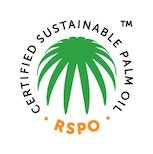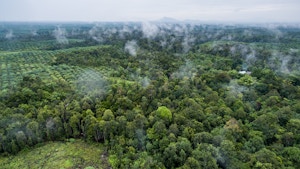The world’s largest ethical palm oil certification scheme has passed new standards to strengthen requirements on human rights at its 21st General Assembly held after its annual roundtable conference in November.
While the Roundtable on Sustainable Palm Oil (RSPO) has previously placed strong emphasis on the environment – as seen from its adoption of a total ban on deforestation in its 2018 standards review, in line with calls from forest protection groups – social aspects have not historically featured as high on its agenda.
Fears that some members were trying to weaken social safeguards also arose ahead of RSPO’s annual roundtable, when non-governmental organisations (NGOs) claimed that an initial draft of its new standards removed an earlier requirement for free, prior and informed consent (FPIC) – which the entity’s head of human rights and social standards Leena Ghosh has clarified as incorrect.
Ghosh, a trained lawyer who joined RSPO in 2022, maintained that the principle, which enables Indigenous and local communities to withhold consent to the use of their lands, was “never removed from the standards”.

In 2022, Leena Ghosh joined RSPO as its head of human rights and social standards. Prior to RSPO, she worked at the Asean Secretariat and the International Committee of the Red Cross dealing with regional human rights development and international humanitarian law. Image: RSPO
“However, the word ‘FPIC’ was not written in the revised indicator for existing plantations, and this led to a misperception that it was no longer required or ‘removed’ from the standards,” Ghosh told Eco-Business.
“This was farthest from the truth. There was a lack of understanding in reading the indicator to be outcome-based,” she said. Outcome-based indicators, unlike process-based indicators, ensure companies are achieving desired long-term results, which in the case of FPIC means that consent has been obtained on land used for palm oil cultivation, clarified Ghosh.
Beyond FPIC, the revised RSPO Standards include strengthened indicators on forced labour, another major concern within the sector.
“In 2018, there was no mention of the 11 International Labour Organisation (ILO) indicators. What we’ve done is to make it very clear that they do apply, so there’s no question about it anymore,” she said.
The RSPO has also added new indicators to apply these ILO indicators in the palm oil sector, one of which is a clarification that the company must repay recruitment fees and other related costs incurred by the workers.
“Unpaid recruitment fees are is a major concern for most consumer goods manufacturers, especially if the product is coming from countries highly dependent on migrant labour in palm oil plantations. With this obligation to repay, companies cannot defer indefinitely repayment to their workers, said Ghosh.
Ghosh shared that the revised RSPO Standards, which aimed to plug the “gaps and inadvertent weaknesses” in its rules, started with a gap analysis of the 2018 RSPO Standards and the 11 ILO Indicators of Forced Labour.
The introduction of two major EU regulations in 2023 further strengthened the case for RSPO to incorporate HRDD into its principles and criteria (P&C). The European Union Deforestation Regulation (EUDR), to the dismay of many, saw its January 2025 start date delayed by a year, while the Corporate Sustainability Due Diligence Directive is set to come into force in 2027.
“Two or three years ago, human rights due diligence (HRDD) was not a requirement for market access,” she said. But fast forward to 2023, HRDD has been incorporated into RSPO’s Principles and Criteria (P&C) so that members can meet new international requirements and “not be left out of the market by being unprepared.”
“We are thinking ahead and saying HRDD is here to stay. It’s only timely that we do this now,” said Ghosh, when asked why these requirements have only just been integrated into RSPO Standards, when the sector has long been heavily linked to human rights violations.
“If you closely analyse the RSPO standards, both in terms of avoiding labour and land rights violations, it is all there,” she said. “What we have seen is that certification alone may not be wholly sufficient. HRDD provides an important dimension for companies to take responsibility for actions in their operations.”
Ghosh added that it requires “a mindset shift” for members to take responsibility for their entire operation, beyond lands submitted for certification. “What people tend to forget is that HRDD is about taking ownership of potential issues within one’s operations rather than having external auditors point out the non-conformities.”
Strong principles, weak auditing
For years, civil society organisations have questioned the effectiveness and independence of RSPO’s social audits, which they argue have failed to identify violations such as land grabbing, forced labour and poor working conditions across its members’ supply chains.
Speaking on one of the panels at the recent roundtable, Marcus Colchester, senior policy advisor at non-profit Forest Peoples Programme (FPP) said that RSPO already has a set of P&C that is robust, and now it should look into strengthening the enforcement of the social aspects of its standards.
At times, oil palm companies have also been accused of colluding with RSPO-approved auditors to cover up serious violations of the organisation’s standards.
In 2016, RSPO auditors were criticised for overlooking human rights abuses, which included child labour and unsafe working conditions, in plantations.
These historical failings have led to the establishment of an Assurance Standing Committee in 2019 to strengthen RSPO’s assurance system. The committee has since proposed labour auditing guidelines to standardise how the social criteria are evaluated.
“Watch this space, as RSPO is embarking on a lot of things which are really going to strengthen our assurance,” said Ghosh. “As a sneak peek, we are engaging with the certification bodies as well as Assurance Services International (ASI), which is our accreditation body, to provide a clear interpretation of our standards and to develop guidance on implementation.”
RSPO’s new digital traceability system, Palm Resource Information and Sustainability Management (Prisma), will also help strengthen the assurance against the new P&C indicators, said Ghosh.
“We have been conducting extensive stakeholder training programmes to demonstrate how the new system will act as a supporting tool for members to strengthen risk assessment and due diligence for emerging regulatory compliance”, added Ghosh.
Ghosh acknowledged that it was also critical to continue efforts to build the capacities of Indigenous peoples and affected communities on how to access and properly utilise RSPO’s systems, including the independent Complaints System.
She added that RSPO has a programme called the Intermediary Organisation (IMO) to engage with local communities and make them aware of the various complaints mechanisms available to them and how to submit complaints.
FPP’s Colchester said he believes IMO’s engagement would be important, so that any efforts to strengthen the complaints mechanism take into consideration feedback from the people. Speaking at the roundtable conference, Archana Kotecha, founder and chief executive officer of The Remedy Project, a Hong Kong-based social enterprise working to combat exploitation in global supply chains also suggested for any grievance mechanism to have a technological component to it, though she emphasised the importance of speaking to communities on the ground. There then needs to be “triangulation” between the data and the conversations with people to have a fuller grasp of the human rights risks they face on a daily basis, she said.
As of 2023, RSPO has conducted nine community outreach programmes in seven countries, including Nigeria, Malaysia, Indonesia, Colombia, Guatemala and Honduras, and reached 4,750 stakeholders.















